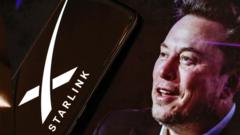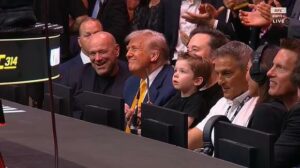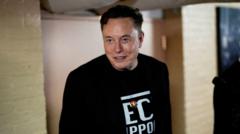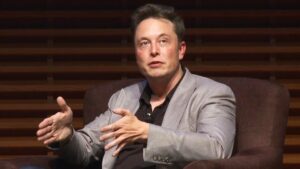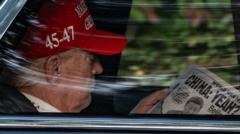After weeks of support for Nigel Farage and his anti-immigrant party, Musk has dramatically reversed course, criticizing Farage's leadership and distancing himself from controversial figures.
Musk Disavows Farage: A Shift in Political Allegiances

Musk Disavows Farage: A Shift in Political Allegiances
Elon Musk's sudden critique of Nigel Farage raises questions about the future of political alliances in the U.K.
Elon Musk, the prominent supporter of Donald J. Trump, has made headlines with a stunning reversal regarding his support for Nigel Farage, leader of the anti-immigrant Reform UK party. For several weeks, Musk had been an ardent promoter of Farage's populist agenda, which he believed to be the solution for Britain's various concerns.
However, in a surprising post on Sunday, Musk declared, “The Reform Party needs a new leader. Farage doesn’t have what it takes.” This abrupt change has puzzled many, especially as Musk offered no clarification about his newfound stance. Speculation suggests that Musk's discontent is tied to Farage's refusal to endorse his call for the release of Tommy Robinson, a polarizing figure with a criminal record and a background noted for Islamophobic rhetoric.
In response to Musk's repudiation, Farage expressed his disagreement on social media, saying, “Elon is a remarkable individual, but on this I am afraid I disagree. My view remains that Tommy Robinson is not right for Reform and I never sell out my principles.”
Musk’s fracture with Farage reflects a broader trend of shifting political dynamics as he attempts to assert influence in European politics akin to his impact during the American election cycle. As the situation unfolds, observers are left to ponder the stability of political affiliations in a rapidly evolving landscape.





